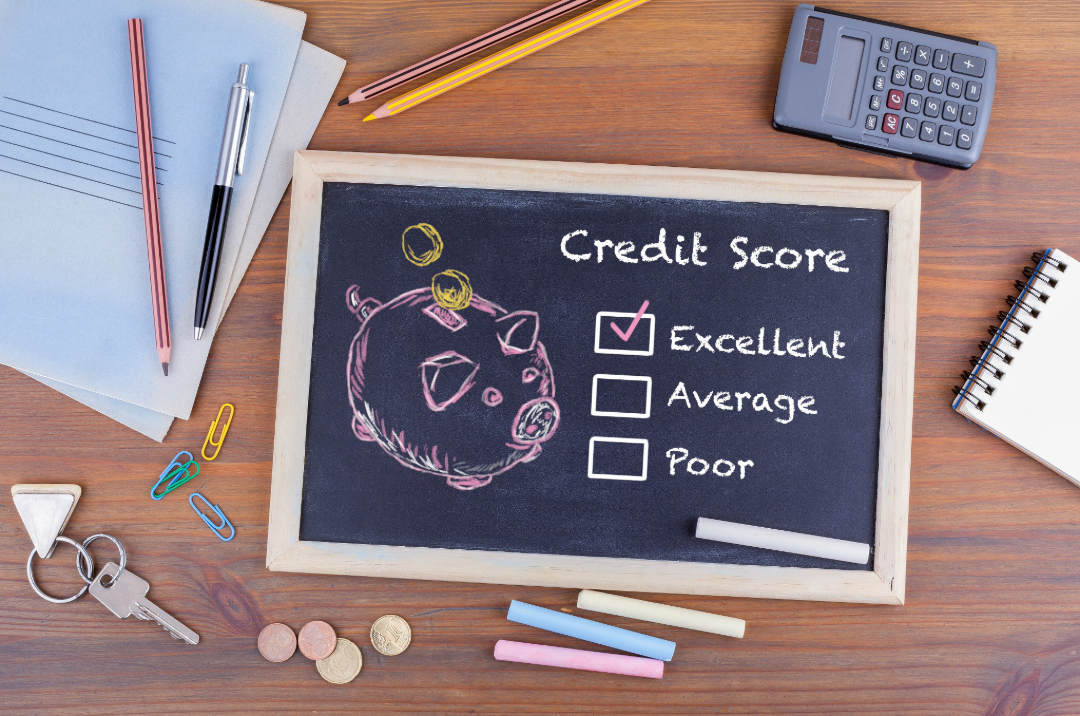Why should you care about your Credit Score? Most people, at some point in their life, have borrowed money for a purchase.
It used to be just for the big items such as a mortgage for a home, or a loan for a vehicle. Sometimes we might even get a loan for a home improvement, such as redoing the bathroom or a kitchen renovation, or even for a big project such as a house extension.
Back in the old days you would make an appointment with your bank, go in and speak to them about your lending requirements. They would look at your account history and they may even know you personally. A decision would then be made by a human as to whether the bank was going to lend you the money, and under what terms.
Nowadays there is no need for human interaction. Decisions are made by computers calculating the risk of each lending decision.
Often credit can be very easy to come by, although not necessarily on good terms.
There can be huge differences in the amount of credit offered, as well as the interest rate charged, that the borrower will have to pay back during the life of the loan.
Interest charged is one way the bank or lending institution makes money. The higher the charge the more money it can make. It charges interest as a percentage of the amount borrowed.
Repayments will consist of the interest charged and the principal sum borrowed.
Sometimes there are interest free introductory periods, but ultimately there will always be a way that the lender makes money on the lending transaction.
Why is a credit score used?
Credit reference agencies provide lenders with information about potential borrowers, lenders will use that information as part of the decision-making process as to whether they will provide credit and lend the borrower money.
Humans have largely been removed from the lending decision making process. We are less likely to have a personal relationship with our bank, and our bank may not even be local.
With that there must be a way to assess the credit worthiness of the potential borrower.
This is where the credit score comes in. Based on the credit score a borrower can be assessed for credit worthiness without ever meeting the lender.
A credit score is a quick and easy to use number that can indicate a good borrower from a high-risk shady prospect.
In the UK, there are three main credit reference agencies. In no particular order of preference these are:
Equifax, Experian and TransUnion.
The credit reference agencies gather information about most adults within the UK.
If you live in the UK, have used credit in the past and are over the age of 18 you should have a credit report available with each of the three main credit reference agencies.
What is included on a credit report?
Typical items on a credit reference report include:
- Bank accounts
- Credit cards
- Current address
- Leases
- Loans
- Mobile phone contracts
- Mortgages
- Overdrafts
- Voter registration
Previous addresses will also be listed as well as previous names and aliases, for example maiden names.
The report will also show your current level of borrowing, the credit limit and the credit utilisation (meaning how much of your available borrowing you are using). It will state if you were late with repayments and if you have previously missed a payment.
If you are late with a repayment, it may negatively impact your ability to obtain credit in the future.
Credit reports will also state if you have any county court judgements and if you are bankrupt.
Not all credit reports or credit scores are the same. You will have a different report and a different credit score with each of the credit reference agencies.
Check your credit reports with the main agencies for anomalies, then you will have visibility of what needs changing, correcting and updating.
Request a free credit report
You can request and receive a free statutory credit report from the credit reference agencies.
You do not need to pay to check your statutory credit report.
Visit the website of the credit reference agency and follow the instructions to request your free statutory credit report. Each credit reference agency website contains instructions on how to do this or has a “Help” section.
Some of the reports you will receive immediately. Others can take up to 28 days and require an access code to be sent to your home address.
Once you have received your statutory credit report take the time to go through it. Check the credit reports and see what information the agencies hold about you. The reports may be similar among agencies but they will all differ somewhat in the data contained.
Take time to check the reports
Credit reference agencies can make mistakes, which is why it is important to check that the information they have on file about you is correct and up to date.
If you spot an error on the report there is a process where you can notify the agency and request for it to be corrected or removed.
Importantly if you find an error on the report request a correction. You should request corrections because if you plan to rely on credit in the future, you will be assessed based on your personal fiscal behaviour and not on incorrect data that may negatively affect your credit score.
When we were planning to take out a mortgage, I made a point of checking the credit files. It cost nothing to check and gave me peace of mind that everything listed on the reports was correct.
Even if you have no intention of ever borrowing money check your credit report. Circumstances may change. If you one day need to rely on credit you want to make sure you are in the best possible situation to get the best credit terms for your situation.
For certain jobs you may be subject to a credit check. A poor credit history and a low credit score may adversely affect you on the job market.
The difference between high and low credit score
The higher the credit score the better the credit worthiness.
If you are a borrower who has many credit cards and loans, misses payments and uses every single bit of available credit, you will likely have a low credit score.
A low credit score indicates that the potential borrower is a credit risk and the lender will either avoid those borrowers if they are too risky, or it may charge an inflated interest rate on the borrowed amount.
The lender aims to maximise the amount of interest and fees it can charge, while ensuring it will get repaid for the sum originally borrowed.
A high credit score will typically indicate the ideal borrower. Someone who pays on time each month, who settles their debts and who has not opened many credit agreements recently. These high credit score people may be offered higher levels of credit and may also be offered substantially lower interest rates.
Those with a high credit score can typically borrow more and at a lower interest rate.
If you have a low credit score it will mean you can borrow less and pay a higher interest rate for the privilege.
Credit obtained with a low credit score will cost you more than if you had a high credit score.
Hard and soft credit searches?
Credit reports consist of hard and soft searches.
A hard credit search involves a review of your credit record, which may affect your credit score and eligibility.
A soft credit check provides a view of your credit eligibility. Soft searches will not affect the credit score or the ability to get credit.
Limit the number of times a hard search is conducted on your credit file. A high number of hard credit searches can indicate that you plan to borrow money and that you are financially insecure.
Only consent to a hard credit search when you are requesting credit.
Are you financially linked to another person?
The statutory credit report will show if you are financially linked to another individual. For example, if you have or had a joint bank account or any type of joint lending arrangement such as a joint loan. That financial link will continue to show on the report even after the outstanding debt has been settled.
Do not allow an irresponsible person to impact your credit score.
To remove the financial link to another person you must request this directly with the credit reference agencies.
You must ask to have the financial link removed from your credit report.
If you separate or divorce you should have that financial link removed as soon as possible from your credit file. You need to do this because the financial behaviour of the other person may negatively affect your credit score based on their actions and behaviour with debt repayments.
8 ways to improve your credit score?
- Review your credit reports for free. Do this to make sure that all the information held about you is correct.
- Register to vote. Electoral register information is used to verify you and it is an easy way to show that you have a stable address history and that you can be contacted for any money owed.
- Never miss a payment. Always pay at least your minimum payment on all debts by the due date.
- Limit requests for new credit. Having too much available credit can reduce the likelihood of being approved for further credit.
- Use a mix of different forms of credit over time. For example, a credit card, a personal loan, and repayments on a mobile phone contract.
- Avoid negative payment markers like arrears, defaults, county court judgements and insolvencies. These can be added to your credit report if you consistently miss repayments.
- Keep your credit utilisation below 30%. Do this by only using 30% of the available credit. For example if you have a credit card with a £1,000 limit don’t use more than £300.
- Keep credit active. Use credit, pay it off and then use it again. This shows that you are actively using credit on a regular basis.
Plan ahead for your credit needs
If you are planning on making a big purchase on credit in the next few years check your credit reference agency reports. Take action now so that you are viewed as a good credit risk when you do apply for credit.
Be fiscally responsible and watch your credit score flourish. Aim for the highest credit score possible. It is possible to obtain a perfect credit score while actively using credit.
Start building your credit score now for your future credit needs.

